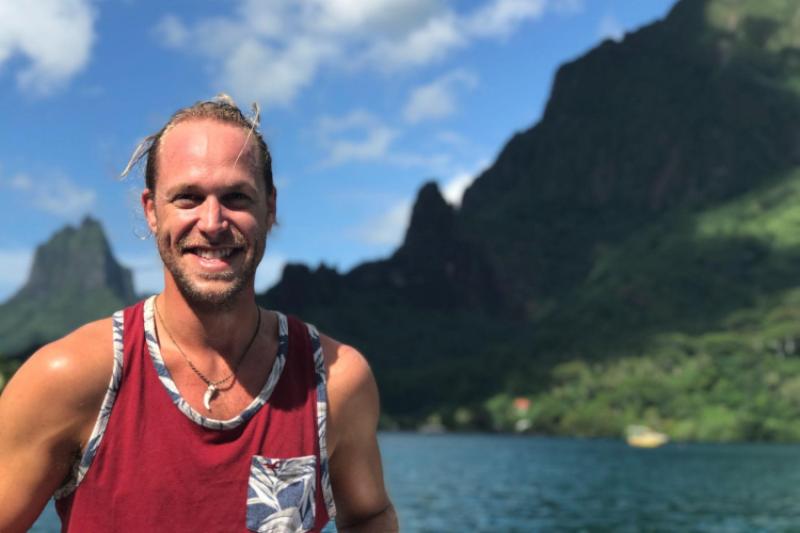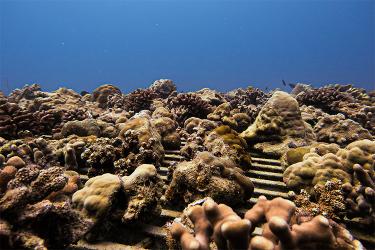Where did you grow up?
I grew up in Conway, Massachusetts, a small town in the western part of the state that does not have a stop light to this day.
Where did you go to school and in what subject did you get your degree(s)?
I received my Bachelor’s of Science in Environmental Sciences from the University of Massachusetts, Amherst. I obtained my Master’s of Science in Environmental Studies from Florida International University (FIU) in Miami. I also completed the first 3 years of my Doctorate in Biological Sciences at FIU before transferring to the University of California Santa Barbara (UCSB). I spent another 4 years there before completing my degree in Ecology, Evolution, and Marine Biology. After graduating, I worked as a research associate for the Marine Science Institute at UCSB investigating how overfishing, nutrient pollution, and disturbance interact to affect benthic community composition on coral reefs in Mo’orea, French Polynesia and Palmyra Atoll. Before beginning my position with the science center, I was a postdoctoral researcher at UCSB studying the impacts of marine protected areas on sandy beach ecosystems in coastal California.
How did you come to work at the Southeast Fisheries Science Center?
I was introduced to the science center while working as a marine data habitat technician in the capacity of a contractor for NOAA in 2011. During this time I met my predecessor, Dr. Margaret Miller. She played an important role in shaping my dissertation work as a member of my Doctorate committee while at FIU. The impressive work that Dr. Miller accomplished and the duties of her job position were two of the major reasons I embarked on my Doctorate in the first place. I hoped to have a similar job that would allow me to conduct meaningful research on coral reefs to inform and improve how we manage and conserve these invaluable ecosystems. I was very fortunate with regards to the timing of completing my degree and applied for this position following Dr. Miller’s retirement.
What do you do at the science center?
I lead the Coral Research and Assessment Lab (CoRAL) Team at the science center. My role is to seek funding and research opportunities, develop projects, and conduct research that helps us manage, conserve and restore populations of corals. I’m primarily focused on those listed as threatened under the Endangered Species Act in Florida and throughout the Caribbean.
A primary goal of our team’s work is to provide information in a timely manner that can be directly applied to help manage threatened coral populations and coral reefs.To identify and focus on urgent and high priority questions, I work with a diverse group of collaborators including:
- Resource managers
- Restoration practitioners
- University research scientists
- Local, state, and federal government partners
What do you like most about your position?
I enjoy the collaborative nature of my position. It affords the opportunity to work and interact with a broad spectrum of people involved in marine science, conservation, education, and resource management. I particularly enjoy the process of designing experiments and field surveys to address important and emerging knowledge gaps—as well as actually getting into the field to do our research. The applied nature of our work to provide results that can directly be used to improve how coral reefs are managed is especially rewarding.
What do you like to do outside of work?
My wife, Sabrina, and I recently had our first child, Marisol, who is now 10 months old. Outside of work we mainly enjoy the new addition to our family! We love to be outdoors whenever possible and spend a lot of time at the beach. I enjoy being active and most water-oriented activities we are fortunate to have access to—surfing, paddle boarding, diving, and snorkeling—as well as running and yoga.







